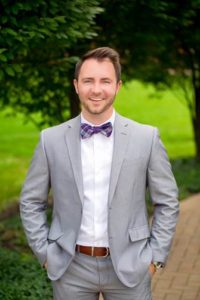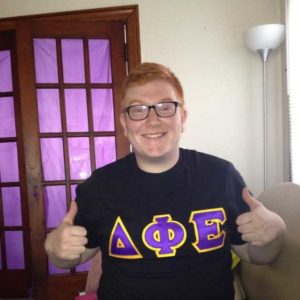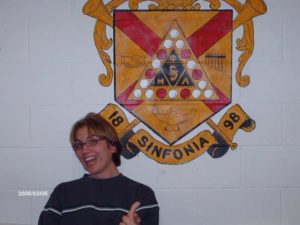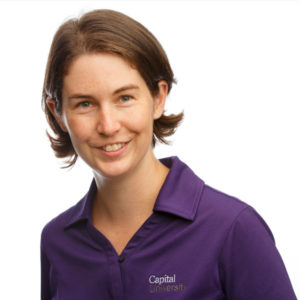We know them as employees, but there was once a time when a few of our faculty and staff members were walking campus as students. These faculty members include professor Taylor Police, interim director of alumni engagement Dustin Grovemiller, I.T. technician Aaron Butts, professor Nate Jackson and professor Betsy Pike.
“As a student, I felt like I knew everyone on campus, and I was very involved with the everyday aspects of being a college student,” Police said.
Since graduating in 2009, Police had other jobs prior to returning back to campus.
“I worked for other companies and universities for six years before returning,” Police said.
Such positions included manager at Target; sales manager at FST Logistics; and graduate assistant and professor, as well as assistant director of annual giving at Kent State University.
“I came back to Capital because they were offering a position that I always wanted on campus,” Police said. “It was the perfect time in my life to come back to [Capital] and Columbus.”
Police is not the only one who sought employment elsewhere before returning back to Capital. Grovemiller was much like Police in that it took him some time before returning to campus.

“I didn’t immediately stay and land a position here following graduation,” Grovemiller said. “As fate would have it, I needed to make some other stops on my path before returning.”
Being able to work at Capital has been a positive experience for Grovemiller.
“Having the opportunity to return to your alma mater as a staff or faculty member is a special thing,” Grovemiller said. “Plus, a lot of the positive things I’ve been able to explore in my professional life since graduation came about either because of people I met while I was a student or from some experience I’d had here during my time in undergrad. Being able to support those same opportunities for students here today, and encouraging others to do so as well, is important to me.”
Butts, on the other hand, felt a difference in atmosphere when returning to campus after working I.T. at American Cancer Society as well as at Ohio State University’s medical center.

“Capital seems a bit smaller,” Butts said. “As a student, every single one of your friends either live in your hall or [live] a block over on Sheridan. Now that my friends have moved all across the country, being at Capital without them is really bittersweet.”
Jackson, who taught at the University of Akron before returning, has felt content and at home on campus.
“I love it here. This place was incredibly formative for me,” Jackson said. “The religion and philosophy faculty genuinely cared (and still do) about students’ interests and development. The opportunity to teach at Cap really is a dream job for me.”

Similarly to Butts, Jackson has seen a different side to the university than when he was a student.
“As a student, there’s a sense that you’ll be moving forward somewhat quickly,” Jackson said. “And while you want what’s best for the institution, you rightfully prioritize your education.”
Working as a faculty member makes the experience on campus different.
“On the faculty side there’s a deeper sense of permanence,” Jackson said. “Working for the good of the institution and current and future student communities can demand a longer view.”
However, Jackson was still adamant on what he sees the university as being.

“Capital’s mission and identity take the idea of education having moral or civic import seriously,” Jackson said. “We want well-educated people to serve the world, to recognize and care about injustice. You see Cap students and community members embracing this mission all the time. It’s life-giving.”
Pike’s experiences lead her back to campus as well.
“After I graduated, I went for my masters at Ball State, which took two years,” Pike said. “I was hired and worked there for three years until going to Ohio University for my Ph.D. I then worked at Ohio University for two years until I started applying elsewhere.”

Pike had applied to 13 different universities.
Some of which included Columbus College of Art and Design, Ball State, and Capital, as well as other universities located in cities like Chicago and New York.
Pike accepted her job here and started August 2012.
“It was certainly different having professors that I had in undergrad being my colleagues all of a sudden,” Pike said.
Since then, Pike has been able to apply her personal goals here, one example being the new immersion class, where students apply what they have learned in a real-life scenario.
“I believe that is how [university] should be,” Pike said.

